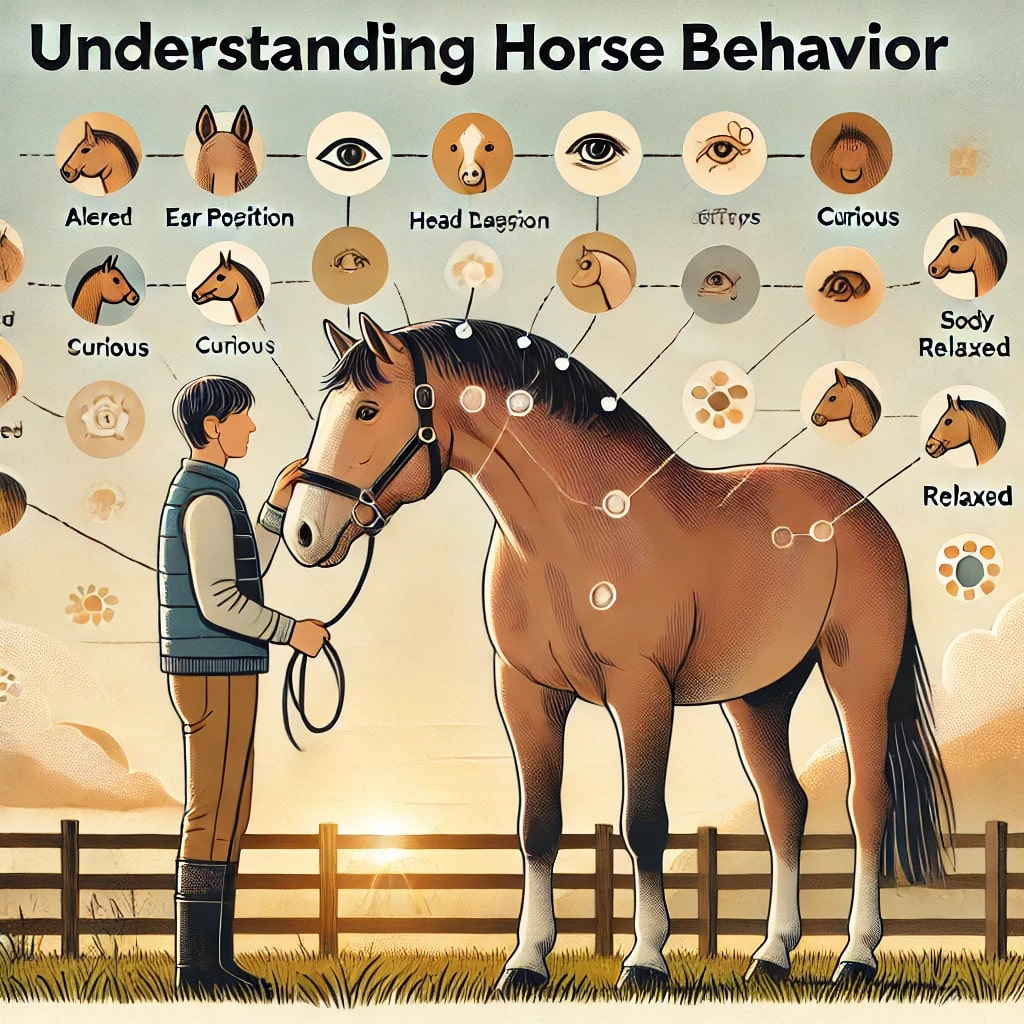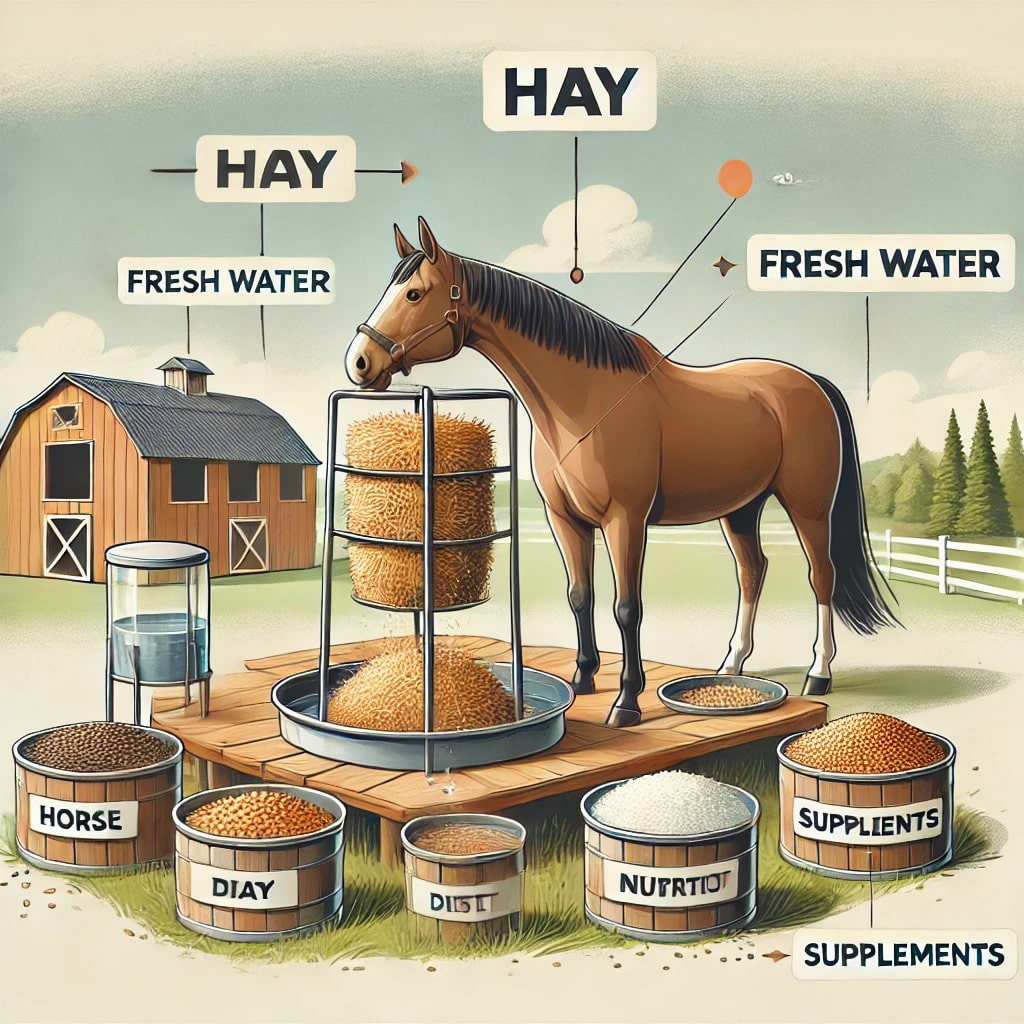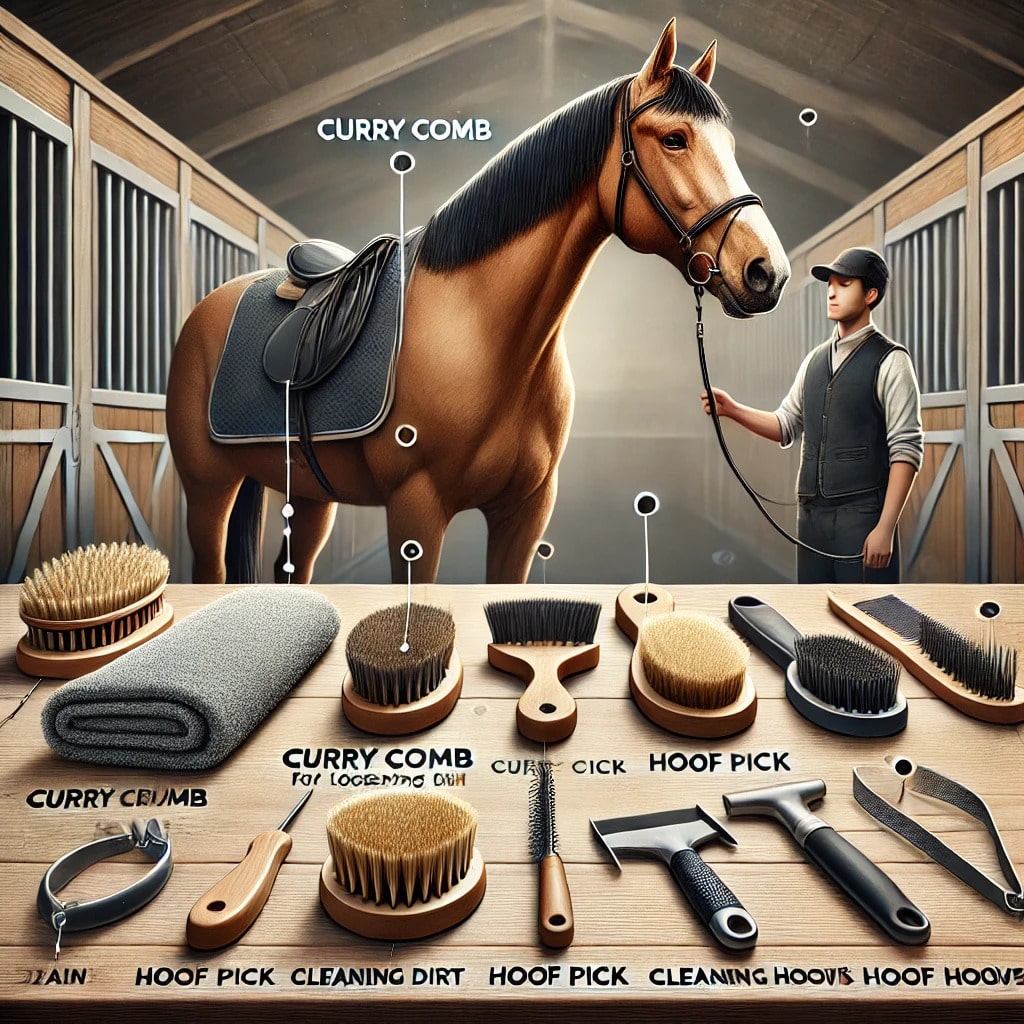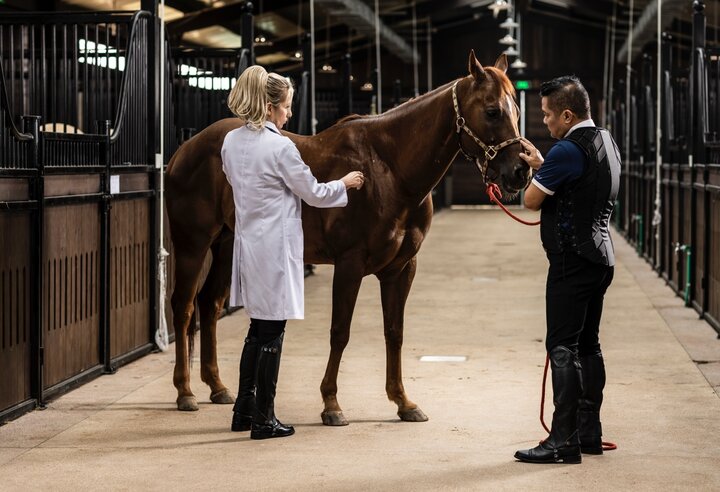Owning a horse is a rewarding experience, but it also requires dedication, knowledge, and proper care. This comprehensive guide is designed for beginners who want to provide the best care for their horses. Whether you’re a first-time horse owner or just starting to learn the basics, this guide covers everything you need to know, from feeding and grooming to health checks and equipment essentials.
1. Understanding Horse Behavior

Before diving into horse care routines, it’s crucial to understand basic horse behavior. Horses are naturally prey animals, meaning they are sensitive and alert to their surroundings. They thrive on trust, clear communication, and consistent routines.
- Body Language: Horses communicate through body language. Learn to interpret signs of relaxation, anxiety, and discomfort.
- Social Needs: Horses are social creatures that need companionship. Consider pairing your horse with another animal to reduce stress and loneliness.
2. Horse Diet and Nutrition

A balanced diet is vital for a horse’s health and energy levels. Understanding their nutritional needs will ensure your horse remains healthy and active.
- Forage First: Hay and pasture grass should make up the bulk of a horse’s diet. Horses naturally graze throughout the day, so having constant access to forage is essential.
- Water Intake: A horse drinks between 5-10 gallons of water daily. Ensure access to clean, fresh water at all times.
- Supplements: Depending on your horse’s age, weight, and activity level, certain supplements like vitamins, minerals, or joint support may be beneficial. Consult a veterinarian before introducing any supplements.
3. Grooming Essentials

Grooming is more than keeping your horse looking its best; it’s also an opportunity to check for injuries, infections, and overall health.
- Brush Regularly: Brushing removes dirt, stimulates blood circulation, and keeps the coat shiny. Use a curry comb to loosen dirt and a stiff brush to remove it.
- Hoof Care: Horses’ hooves should be cleaned daily. Check for any signs of damage, cracks, or infections. A farrier should trim hooves every 6-8 weeks.
- Bathing: Horses don’t need frequent baths, but occasional washing, especially during shedding seasons, can help maintain a clean coat.
4. Setting Up a Comfortable Living Space

The living environment is critical to your horse’s well-being. Horses require shelter, adequate space, and a clean environment to thrive.
- Stabling vs. Pasture: Horses can live comfortably in either stalls or pastures, depending on weather and land availability. Make sure the area is safe, well-ventilated, and protected from extreme weather.
- Bedding Options: Use straw, shavings, or rubber mats to provide a comfortable bed. Clean the area daily to prevent infections and ensure hygiene.
- Fencing: Secure fencing is essential to prevent injuries and escapes. Wooden, vinyl, or electric fencing are common options, each with its own benefits.
5. Exercise and Training
Regular exercise is essential to a horse’s mental and physical health.
- Riding: Riding is a common exercise, but it’s essential to ease your horse into routines and avoid overworking, especially for young or older horses.
- Groundwork: Groundwork helps build trust and discipline. It can include walking, lunging, and other groundwork exercises.
- Turnout Time: Horses need time outside to move freely, socialize, and graze. Turnout time should be a part of every horse’s routine.
6. Health Care Basics
Preventative care is crucial for maintaining a horse’s health. Regular vet check-ups, vaccinations, and dental care are all essential components.
- Vaccinations: Vaccinations protect against diseases like tetanus, rabies, and influenza. Work with a veterinarian to set up a vaccination schedule.
- Deworming: Horses should be dewormed regularly to prevent parasites. Your vet can recommend the best schedule based on your horse’s needs.
- Dental Care: Regular dental checks prevent issues like sharp teeth, which can cause eating problems. A vet should check your horse’s teeth at least once a year.
7. Essential Equipment for Beginners
Having the right equipment makes caring for a horse easier and safer. Here’s a list of must-haves:
- Halter and Lead Rope: Essential for handling and moving your horse safely.
- Bridles and Saddles: These should be fitted correctly to ensure comfort and prevent injury during rides.
- Grooming Kit: Includes brushes, combs, and hoof pick for daily grooming routines.
- First-Aid Kit: Have a first-aid kit on hand with bandages, antiseptics, and other essentials in case of injuries.
8. Recognizing Signs of Illness
Knowing when your horse is unwell is essential for early treatment. Common signs of illness include:
- Change in Appetite: Loss of appetite may signal an underlying health issue.
- Lethargy: Sudden lack of energy can indicate pain or illness.
- Colic Symptoms: Colic is a common, potentially serious condition in horses. Signs include pawing, rolling, and looking at the belly.
Taking care of a horse is a fulfilling but demanding responsibility. This beginner’s guide covers the essentials, but ongoing learning and consultation with experienced equestrians and veterinarians are invaluable. With patience, dedication, and the proper resources, you’ll be well on your way to providing excellent care for your horse and building a strong, rewarding bond.

